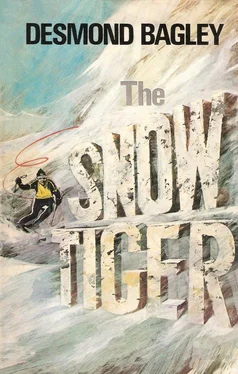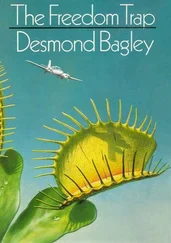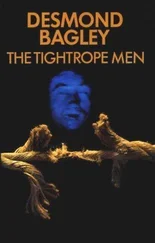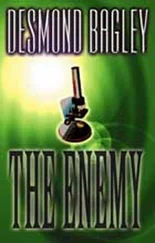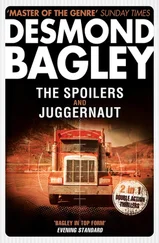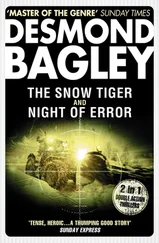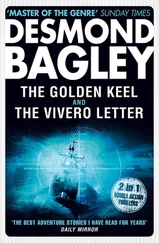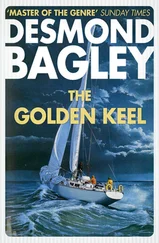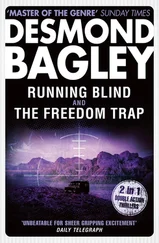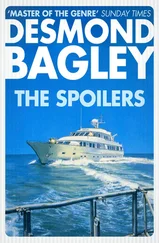Within the hour Cameron was in a helicopter on his way to Christchurch. But he was a badly broken man.
Newman was unlucky.
All night he had been digging upwards in total darkness. He had to dig a hole at least two feet in diameter to accommodate the shoulders of a broad man. There had also to be steps cut in the side where he could stand. For digging he used whatever came to hand. His most useful tool was a ballpoint pen which he jabbed repeatedly into the snow above him, breaking it out, chunk by chunk. Often the snow dropped into his eyes, but that did not matter because it was dark anyway. Twice he dropped the pen and that did matter because he had to go down and grope with gloved hands until he found it. He lost time there.
In one sense he was lucky. He did not know how far he had to dig and had he known it was as much as sixty feet it is doubtful if he would have ever begun. But during the time he was under the snow it had begun to settle and compact as the air was squeezed out of it. While this made it a harder material to penetrate it also meant that it lessened the distance he had to dig to a little over fifty feet.
He dug alone because the others in the cave had lapsed into total apathy.
Fifty-two hours after the avalanche the sky was darkening and Sam Foster, a Ranger from Tongariro, debated with himself whether or not it was worth while having his team continue the search. There were still a few men missing but it was inconceivable that any would be alive even if found. Perhaps it would be better to call off the search until the morrow.
He strode into a gently sloping cup-shaped hollow and was somewhere in the middle of it when the snow gave under his feet. Newman had dug to within a foot of the surface, and when Foster’s weight broke through one of Foster’s boots slammed into his head. He fell down the hole he had made. It was not a long fall because the bottom of the hole was packed with the debris of his digging. But it was enough to break his neck.
The others, of course, were rescued, excepting Haslam who was dead already. Newman was the last person to die in the valley. The last person to die as a result of the disaster at Hukahoronui was Mrs Jarvis, the oldest inhabitant, who lingered tenaciously in hospital for a week before she succumbed.
There was a second avalanche on the west slope of Hukahoronui that year but it happened in the spring thaw. There was nobody there to kill.
At three-thirty in the afternoon McGill parked his car and hurried across Durham Street towards the Provincial Government Buildings. Instead of going into the chamber where the hearing was being held, he went upstairs to the entrance to the Press gallery and had a word with the usher. Presently Dan Edwards came out to see him.
‘I keep my promises,’ said McGill. ‘You’ve got your story.’ He gave Edwards an envelope. ‘A photostat of a letter which is self-explanatory and some photographs which I’ll explain to the Chairman. What’s going on down there now?’
‘Harrison is winding things up. A pathologist is giving medical evidence.’ Edwards paused, his thumb beneath the flap of the envelope. ‘Talking of that — how’s Ballard?’
‘In a bad way.’
‘These bloody hit-and-run drivers.’ He saw McGill’s look of surprise, and said, ‘One of the boys checked at the hotel. It was obviously hit and run, wasn’t it?’ He regarded McGill closely. ‘Or am I missing something?’
McGill poked his finger at the envelope. ‘You’re missing your story.’
Edwards pulled out the copy of the letter and scanned it. His jaw dropped. ‘Jesus! Is this straight up?’
‘I’ll be giving the original to Harrison in less than five minutes.’
‘Thanks, McGill. Maybe I’ll give you a case of beer.’ He went back into the Press gallery and found a young reporter. ‘Take this back to the office. Give it to the editor — in no one else’s hands, understand. Off with you.’
He regained his seat and Dalwood said curiously, ‘Anything doing?’
Edwards grinned broadly and nodded down into the hall. ‘The fireworks are due to start any minute.’
McGill walked across the vestibule, past the two policemen standing outside the chamber, and went inside. Harrison turned his head, and said to the witness, ‘Excuse me, Dr Cross. Good afternoon, Dr McGill. How is Mr Ballard?’
‘He’s still unconscious, Mr Chairman.’
‘I’m sorry to hear it. It’s good of you to return, but not really necessary under the circumstances.’
‘I think my return was very necessary, Mr Chairman. I am in possession of fresh evidence.’
‘Indeed? Step forward, Dr McGill. You are excused for the moment, Dr Cross.’
The pathologist stepped down and McGill stood before the rostrum. He took an envelope from his pocket. ‘I received this letter and discussed the contents with Mr Ballard. We both agreed that it was too important to conceal even though it could destroy a man’s reputation.’
He handed the letter to Harrison who opened it and began to read. It took him a long time and the lines of his face deepened as he read. At last he raised his head, and said, ‘I see. Yes, it would have been wrong to withhold this.’ He looked at the letter again. ‘I see that each page is signed and countersigned, and has the seal of a notary public. Would that be the American equivalent of our own Commissioner for Oaths?’
‘It is almost the exact equivalent, Mr Chairman.’
Harrison’s eyes roved about the room. ‘Mr Lyall, would you mind stepping over here?’
Lyall looked surprised, but said, ‘Not at all, Mr Chairman.’ He got up and walked over to stand next to McGill.
Harrison said in a low voice, ‘This concerns one of your clients. I think you’d better read it.’ He held out the letter.
A few minutes later Lyall said nervously, ‘I don’t really know what to say, Mr Chairman.’ His face was pale. ‘I feel inclined to withdraw from this case.’
‘Do you?’ Harrison’s voice was grim. ‘This is not a case , Mr Lyall; it is a Commission of Inquiry. Apart from that, I doubt if anyone would respect a lawyer who deserted his client when things became hard.’
Red spots burned in Lyall’s cheeks. ‘Very well,’ he said abruptly. ‘But is it admissible evidence?’
‘That is something which I and the assessors will have to decide,’ said Harrison heavily. He took the letter from Lyall and passed it to Rolandson.
McGill said, ‘I have other supporting evidence.’
‘No evidence can be brought to support this letter if the letter itself is not admissible,’ said Lyall. ‘And if you admit the letter there will certainly be grounds for appeal.’
‘There’ll be no appeal,’ said McGill. ‘And you know it.’
‘You are not here to argue a lawyer’s case, Dr McGill,’ said Harrison in tones of freezing rebuke. He turned to Rolandson. ‘What do you think?’
‘I think it’s appalling,’ snapped Rolandson.
‘I mean, is it admissible?’
‘Let me read it all.’ Presently Rolandson said, ‘It has been witnessed under oath. It is admissible.’
Harrison gave the letter to French, who read it and soon looked as though there was a bad smell under his nose. He tossed the letter down. ‘Certainly admissible.’
‘I think so, too. I’m sorry, Mr Lyall.’ Harrison passed the letter to the Secretary to the Commission. ‘Read that aloud, Mr Reed.’ He paused as though confused by the discord of what he had uttered.
Reed scanned the letter and then began, ‘This is a letter from a Mr George Albert Miller of Riverside, California, and is addressed to Dr Michael McGill.’
He read the letter slowly and in an even tone which contrasted oddly with the events Miller described. When he had finished he said flatly, ‘Each page is signed by Mr Miller and countersigned by Carl Risinger. Each page is impressed with the seal of a notary public.’
Читать дальше
Конец ознакомительного отрывка
Купить книгу
